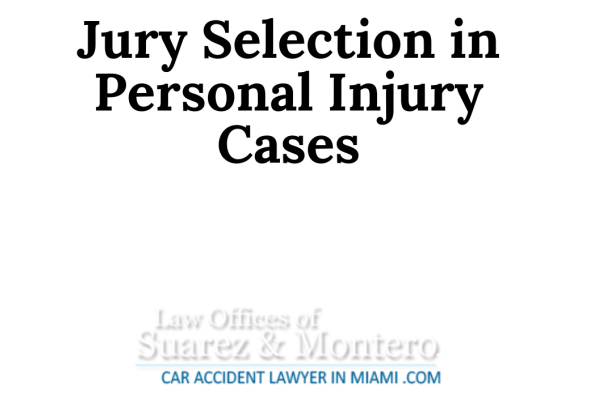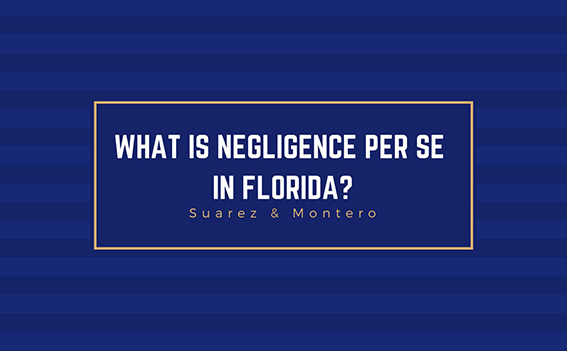
How to Draft a Letter to Notify Your Insurance Company of Your Personal Injury Claim
In most cases, a notification letter will be the first official step you take in pursuing your personal injury claim. In all personal injury claims, the victim is responsible for making sure to notify the insurance carrier for the at-fault party of their intent to file a claim to obtain compensation for their damages. Most auto insurance policies require claimants to notify the company in writing of the claim as a condition precedent to the right to sue. Failing to provide the required information or proof of loss, as requested by the insurance company, permits the carrier to delay paying the claim until such time as it receives the needed information. If you were able to secure the atfault party’s insurance information, you should send the notification letter directly to the other party’s auto insurance provider. If you were not able to secure the at fault party’s insurance information when you were involved in the accident, you can send the letter to the at fault party. A notification letter places the at-fault party on formal notice that you’ve been injured due to their actions, and you intend to obtain compensation for your losses. Always try to send the letter as soon as possible after your injury. Keep in mind, there can be more than one party responsible for your injuries. If the at-fault party does not have auto insurance, you have several options going forward. You can pursue legal action against the at-fault party and obtain a judgment lien against their personal assets or you can demand direct payment. While you may be able to handle a minor personal injury claim on your own, if you or a loved one suffered serious injuries in a car accident, it is in your best interest to seek legal counsel. There’s too much at stake in a serious injury case and there is no room for errors. However, if you decide to send out a notification letter on your own, your letter must appear professional. It should be free of spelling and grammar mistakes and typed on clean bond paper. Make sure to send it by certified mail, return receipt requested. This way you have proof the at-fault party received it in case you need to provide proof of notice later on. If the at-fault party has insurance, they will most likely forward the letter to their insurance company, who will follow-up with you soon after the notification. Again, if you have the insurance company’s contact information, you can go ahead and send the letter directly to the at-fault party’s insurance carrier. It’s a good idea to date the letter the same day you mail it. This helps when establishing an easy to follow sequence of events and highlights the at-fault party’s (or their insurance company’s) response to your claim at all stages of the personal injury claim process. As for the content of the letter, keep the notification letter as simple as possible. Don’t discuss details regarding negligence, fault, or the extent of your medical treatment or injuries. At this point, you likely don’t have all the facts, and may have to change your theory of liability later on. You can lay everything out in your demand letter, which comes much later in the personal injury claim process. Be sure to use an address, phone, and email where you will be most comfortable receiving correspondence from the at-fault driver and/or insurance company. When the at-fault party receives your notification letter, he will likely turn it over to his insurance company immediately. You won’t use the term “your insured” in this notification letter, but you will when communicating with the insurance company. Then, you can refer to the at- fault party as “your insured.” Remember, this is the notification letter, not the final demand letter. At this point, your injuries are recent, and you’re likely still receiving treatment or therapy. Once you have fully healed, only then will you create a formal settlement demand letter. Be advised that although your letter is coming from a non-attorney, it is still considered a signed statement, and will become evidence in any litigation that may be necessary later on.
How an Attorney Can Help with Personal Injury Claim
If your auto insurance company denied your personal injury claim, you may be able to file a lawsuit to obtain the compensation necessary to pay for your medical treatment and expenses. At the law offices of Suarez & Montero Car Accident Lawyers, an attorney can review your policy and the written reason for your denial to ensure that you have a valid claim. After a car accident, it is incredibly important for you to contact a Florida car accident attorney. The Law Offices of Suarez & Montero represents accident victims injured in various types of accidents. Our skillful attorneys are genuinely committed to our clients. We will fight to make sure that you get the maximum amount of compensation owed to you. Let us help you get the medical care you need and fight to make sure you are compensated for your injuries! Our attorneys are ready to provide proven legal representation in pursuing your claim and stand ready to protect your rights. We are available 24/7 to give you a free, no risk case consultation.
We serve clients throughout Florida including those in the following areas:
Miami-Dade: Aventura, Coral Gables, Doral, Fontainebleau, Hialeah, Homestead, Kendall, Miami, Miami Beach, Miami Lakes, North Miami, Tamiami, and Westchester.
Broward: Fort Lauderdale, Hallandale Beach, Hollywood, Pembroke Pines, and Weston; and Palm Beach County including Boca Raton, Lake Worth, and West Palm Beach.
The Law Offices of Suarez & Montero Car Accident Attorneys represents accident victims injured in various types of accidents including:
• Distracted Driving Accident Lawyers
•Drunk Driving Accidents
• T-Bone Car Accidents
• Road Rage Car Accidents
• Head-on Collisions
• Rollover Accidents
• Rear-end Car Accidents
• Left Turn Accidents
• Failure to Yield Car Accidents
• Sideswipe Accidents
• Merging Accidents
• Lane Change Accidents
• Construction Zone Car Accidents
• Truck Accidents
• Semi-Truck Accidents
• Bicycle Accidents
• Train Accidents
• Pedestrian Accidents
• Boating Accidents





